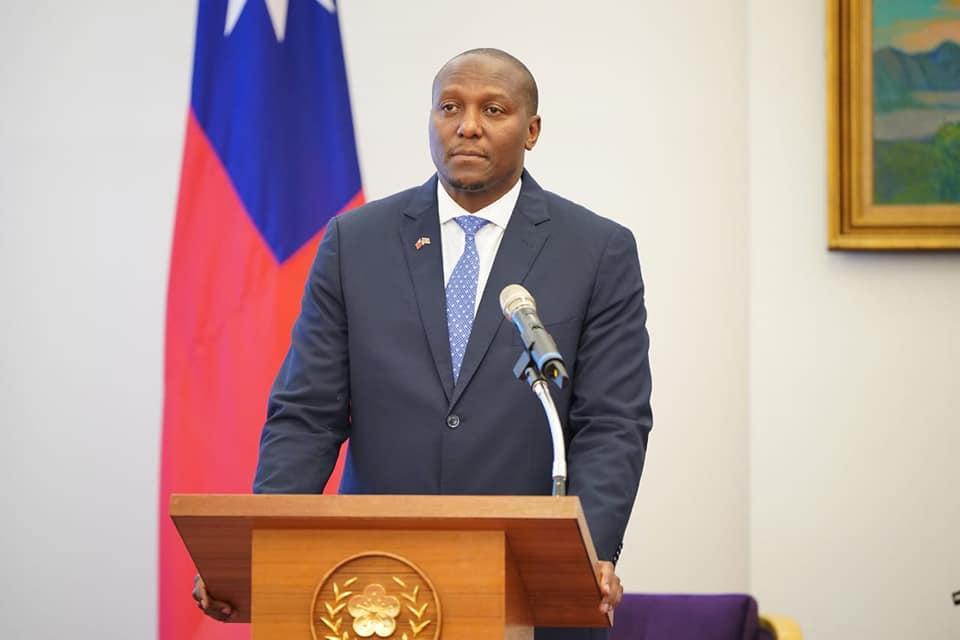Africa-Press – Eswatini. While supporting government’s proactive approach to investment, Business Eswatini (BE) emphasises that the private sector should remain the primary driver of economic growth.
In a statement, BE acknowledged and welcomed the comprehensive policy statement delivered by the Prime Minister Russell Mmiso Dlamini last week. In the statement, the apex body of the private sector cautioned against excessive State involvement in areas where the private sector can lead, such as industrialisation and enterprise development. It said government initiatives, such as the establishment of State-owned entities (SOEs) to lead economic transformation may be construed to mean that government would assume the role of the private sector much against the tenets of the national development plan.
Temptation
“At any rate, government should not yield to the temptation of stifling private sector participation in the economy through a string of SOEs, but should at the very least endeavour to create a level playing field,” read the statement. BE indicated that they fully support government’s ambition to transform Eswatini into a high-income nation by 2030, with a strong emphasis on sustainable economic growth, infrastructure development and addressing critical challenges like poverty, unemployment and inequality. Notably, in their preamble under ‘Problem Description’ government seems to have made credible attempts in applying their minds in clearly defining the litany of challenging confronting this nation.
BE said they are particularly encouraged by government’s commitment to fostering an export-led, private sector-driven economy, which aligns with their vision of a small government that provides an enabling business environment. The focus on attracting mega investments, promoting innovation and supporting micro, small and medium enterprises (MSMEs) is essential to building a competitive and inclusive economy.
“We are also supportive of the emphasis on infrastructure development, especially in sectors such as energy, water and transportation, which are critical to reducing the costs of doing business and enhancing competitiveness,” said BE.The private sector further expressed their full support to policies aimed at reducing unemployment and addressing income inequality. They said they are looking forward to participating in programmes that enhance job creation, vocational training and skills development, especially in areas like Science Technology, Engineering and Mathematics (STEM) education.
Solutions
They urged government to work closely with the private sector to develop practical solutions for human capital development, ensuring that educational reforms meet market needs and foster entrepreneurship. BE noted that the skills being churned out by the local training institutions are increasingly irrelevant to the rapidly changing needs of the private, which of late, are buoyed by the 4th industrial revolution. They said the local institutions seem to have been originally designed to produce competent civil servants and yet a dramatic shift in demand has now occurred in the market place in favour of technical and vocational aptitude, especially information, communication and technology (ICT) skills.
Furthermore, BE highlighted that government’s commitment to a business-ready environment is critical. BE appreciated the proposed reforms to improve service delivery, reduce bureaucracy and modernise public sector management. “These reforms should prioritise removing regulatory bottlenecks and creating a stable, transparent framework for businesses to thrive, particularly for MSMEs,” said BE. BE further appreciated government’s efforts toward fiscal discipline. However, they urged caution in implementing the borrowing plan aimed at infrastructure development. BE said while infrastructure is necessary for growth, unsustainable debt levels could lead to long-term fiscal challenges, which may ultimately harm the business environment and deter investment.
“The country’s public debt level as a percentage of gross domestic product (GDP) should be maintained at between 35 and 40 per cent at all costs. BE said this will entail the need to always cut our coat according to cloth. Business Eswatini reaffirm their partner with government in driving the nation’s economic transformation.” They said as an organisation, they support policies that foster a business-friendly environment and will continue to advocate for reforms that encourage private sector leadership, promote job creation and reduce inequality.
Competitive
“As always, our priority is to ensure that Eswatini remains competitive, resilient and inclusive,” said BE. BE also mentioned that as a parting shot, at the top of the statement, government talks about what they refer to as a ‘mindset change’, which they say is necessary as their ‘plan for development and economic growth’ shall be underpinned by a demonstration of patriotism and excellence. “It goes on to extol the importance of thinking ‘big’ and goes on to reference the programmes that will be launched to achieve the mindset-change in emaSwati.
“As BE, we are unable to decipher the overall intention and ramifications of this statement, as it was nebulous at best. We will however approach for help in defining it in a decoded format for our understanding,” said BE.
For More News And Analysis About Eswatini Follow Africa-Press







